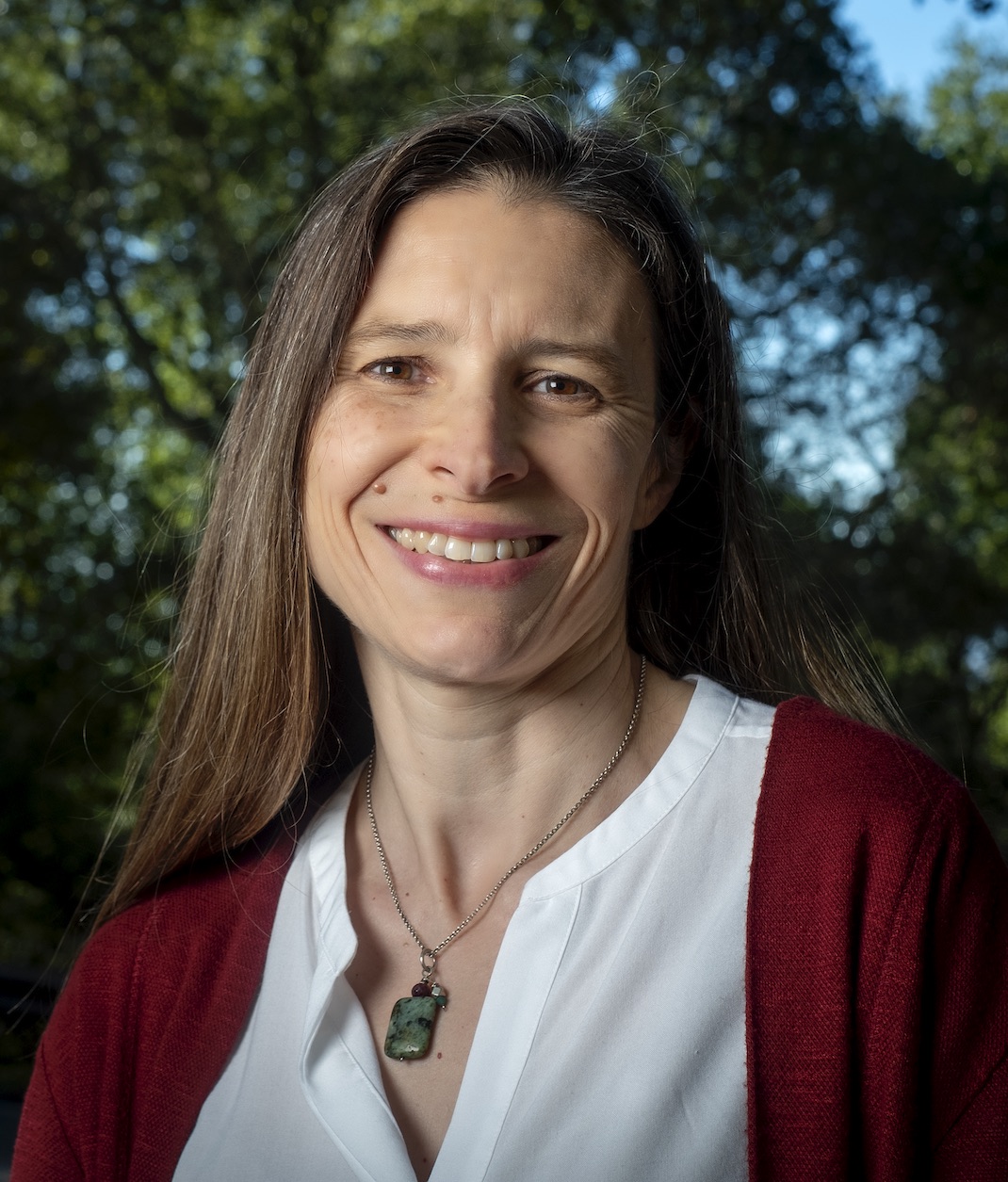
Susannah Tringe, photographed in Berkeley, California, 02/04/2021. (Credit: Thor Swift/Berkeley Lab)
Following an international search, Lawrence Berkeley National Laboratory (Berkeley Lab) has named Susannah Tringe, known for her work in advancing the field of metagenomics, to serve as Environmental Genomics and Systems Biology (EGSB) Division Director.
Tringe, a senior scientist who has been serving as the interim director of the EGSB Division since May 2020, is also deputy for user programs at the Joint Genome Institute (JGI), a DOE national user facility that provides genome sciences services to researchers around the globe. She began at Berkeley Lab as a postdoctoral fellow 17 years ago and has progressed in her career to be the head of the Microbial Systems Group since 2010 and Metagenome Program lead from 2011 to 2015, before assuming her current deputy role.
“We are thrilled Susannah has accepted this position, which is so integral to our efforts in environmental biology, from the genome scale to ecosystems scales,” said Mary Maxon, associate laboratory director for Biosciences. “Under her stellar leadership and with 10 years in leadership positions at the Joint Genome Institute, I am confident that existing EGSB research programs will flourish, and a richer connection of EGSB and JGI will result in powerful new collaborations and technologies development.”
The EGSB Division was established in its current form in 2015, and is one of three scientific divisions that, along with the JGI, form the Lab’s Biosciences Area. The scientific divisions focus on biological systems, from molecules through ecosystems to applications, and are organized by scale of research. EGSB investigators focus their research efforts on linking genome biology to ecosystem dynamics with an eye to developing sustainable solutions to energy and environmental challenges through a mechanistic understanding of ecosystems and how they develop and change over time.
Tringe will continue to lead the Microbial Systems Group at the JGI, which focuses on sequence-based approaches to studying microbial community assembly, function, and dynamics. Major foci of her current research efforts are the roles of microbial communities in wetland carbon cycling and the interactions of plants with their associated microbiomes. Her research interests include terrestrial carbon cycling, particularly microbial factors influencing methane fluxes at terrestrial-aquatic interfaces, and the contributions of plant microbiomes to stress tolerance.
“I’m fascinated by the molecular interactions of microbes with each other and with their environments. This interplay results in communities that are made up of diverse organisms with complex evolutionary relationships that are also functionally coordinated and stable,” said Tringe. Understanding these interactions provides opportunities to harness microbial communities for a range of beneficial services, including improved crop growth, sequestration of atmospheric carbon, and treatment of contaminated water. Tringe continued, “The mission and vision of EGSB reflect my research interests and I look forward to expanding the possibilities in this space within the division.”
In addition, Tringe is the scientific lead for implementation of the EcoPOD prototype version 1, which is a new high-tech ecosystem chamber that can replicate interactions between organisms and environments in natural systems. The EcoPOD leverages Berkeley Lab’s world-leading capabilities in plant, microbial, and environmental science, as well as computation, modeling, and engineering, to develop laboratory-based infrastructure that can mimic aspects of field research sites while retaining the level of control typical of lab experiments.
“Susannah’s international reputation in metagenome science leadership, experience in leading JGI’s User Programs and the diplomacy needed to triumph in that role, and exemplary performance as interim EGSB division director bode well for her success as EGSB division director,” said Maxon.
Tringe is the 2021 recipient of the Ernest Orlando Lawrence Award, one of DOE’s highest honors, which was named after Berkeley Lab’s founder. She was recognized for “advances in sequence-based studies of microbial assemblies, revealing the roles of microbial communities in carbon cycling, in interactions with plants, and as drivers of methane production, nutrient cycling, greenhouse gas emissions, and water recycling.” Tringe was named a Fellow of the American Association for the Advancement of Science (AAAS) in 2018 and was recognized as a top young researcher by Popular Science magazine in their 2011 “Brilliant 10” list.
“I’m excited by this opportunity to advance environmental genomics and systems biology research at Berkeley Lab and work with EGSB researchers to strengthen and build on our world-class programs in molecular ecosystems science, comparative and functional genomics, and biosystems data science,” said Tringe. “In particular I’d like to promote Berkeley Lab as a leader in reproducible plant and microbiome science, leveraging unique strengths like fabricated ecosystems and powerful bioinformatics platforms.”
###
Founded in 1931 on the belief that the biggest scientific challenges are best addressed by teams, Lawrence Berkeley National Laboratory and its scientists have been recognized with 14 Nobel Prizes. Today, Berkeley Lab researchers develop sustainable energy and environmental solutions, create useful new materials, advance the frontiers of computing, and probe the mysteries of life, matter, and the universe. Scientists from around the world rely on the Lab’s facilities for their own discovery science. Berkeley Lab is a multiprogram national laboratory, managed by the University of California for the U.S. Department of Energy’s Office of Science.
DOE’s Office of Science is the single largest supporter of basic research in the physical sciences in the United States, and is working to address some of the most pressing challenges of our time. For more information, please visit energy.gov/science.